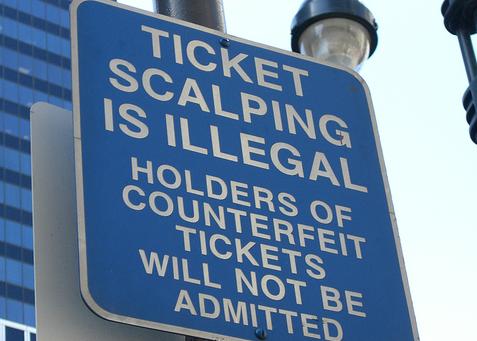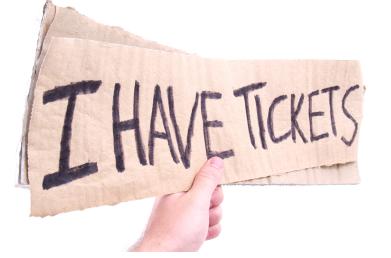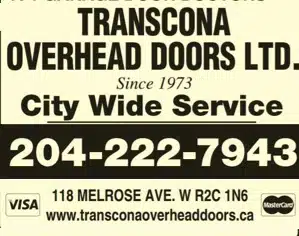Season tickets for Winnipeg’s NHL team sold out in seventeen minutes. Minutes after that, posts from sellers looking to make a profit and buyers desperate to obtain tickets appeared on sites such as Craigslist and Kijiji. Minutes after that, public outrage began to mount over people buying tickets for the sole purpose of re-selling them at a profit.

Re-selling tickets for a profit is prohibited in Manitoba. Which laws prohibit ticket re-selling? What are the consequences? What can True North Sports & Entertainment Ltd. (“TNSE”) do about it? What other issues are involved? Can season ticket rights be legally sold? This article will attempt to answer those questions. In doing so, it will hopefully take something extremely boring (governing legislation), and turn it into something slightly less boring (an article explaining legislation).
Note: This article is not legal advice – it’s a blog post. Do not rely on anything in this article as legal advice.
More after the jump.
1. Governing Legislation
Ticket re-selling is governed by the Amusements Act[1] (the “Act”). Section 59 of the Act prohibits ticket re-selling to a place of amusement. It states:
No person shall sell, barter or exchange for anything any ticket of admission to a place of amusement for a price or consideration greater than that paid or given therefor to the owner of the place of amusement to which it is an admission.[2]
“Place of Amusement” is defined in section 1 of the Act and includes a hockey rink.
Section 44 of the Act sets out the penalties for contravening any provision of the Act or the Act’s regulations. The maximum penalty that can be enforced is $5,000.
Ticket buyers and sellers entering into an agreement to buy or sell tickets should be wary of section 13 of the Act, which states that “any contract made or containing a provision in contravention in this Act is void.”
So what does this all mean for buyers and sellers of Winnipeg NHL tickets? Basically, it is an offence to sell, barter, or exchange your tickets for more than what you paid for them (assuming that you purchased the tickets at their actual cost). If you enter into an agreement to sell or purchase tickets, that agreement is void, and either party can renege on the agreement without consequence.

2. Can TNSE Take Ticket Re-Sellers to Court?
Similar to Manitoba’s legislation, Ontario has legislation prohibiting the re-selling of tickets at more than face value. In 1991, when the Toronto Blue Jays were a hot ticket, the owners of the Toronto Blue Jays tried to obtain an injunction against ticket-resellers. The court refused the injunction, despite the fact that the ticket re-sellers had acted in contravention of the terms and conditions applying to the tickets, and were violating provincial legislation. Why? Because the Toronto Blue Jays could show “no tangible loss.” Also, the court determined that an injunction was not necessary because there was already legislation governing the scalping conduct.
A decision in the United States, however, came to a different conclusion. In this case, Ticketmaster was able to obtain an injunction against a company that sold software that would automate ticket purchases through the Ticketmaster website. The software company argued that Ticketmaster could show “no tangible loss” because the events sold out anyway. The court, however, accepted Ticketmaster’s argument that harm occurred through the loss of consumer goodwill and potential loss of business arising from the perception that the ticket buying situation was unfair to individual buyers.[3]
Not every province has elected to prohibit ticket re-selling for a profit. In British Columbia, ticket re-selling is not prohibited by statute. In fact, the Vancouver Organizing Committee for the 2010 Olympic and Paralympic Winter Games (“VANOC”) set up an official secondary market ticket selling and auctioning website for the purpose of re-selling tickets, and charged a 10% fee to the buyer and the seller. VANOC also reserved the right to cancel tickets obtained from unauthorized ticket resellers.
3. Other Issues
One issue involves ticket resellers located in other jurisdictions selling tickets over the Internet? If an offence occurs over the Internet, where, physically, does it take place? If a seller located in Vancouver, where it is legal to sell tickets for more than cost, sells a ticket to a Manitoba resident, does this violate the Act?
Another issue involves secondary ticket selling websites. These websites do not sell tickets. Instead they facilitate the buying and selling of tickets by providing a place for buyers and sellers to get together. While it is an offence under section 45 of the Act to aid or abet the commission of an offence under the Act, don’t look for StubHub! to be charged under this section anytime soon.
4. Are Selling Season Ticket Rights Caught By the Act?
After this year, season ticket rights to the Winnipeg NHL team will be transferable. Some people are attempting to sell those transfer rights for a profit. Is this covered by the Act? Recall that section 60 of the Act prohibits selling, bartering, or exchanging any ticket of admission to a place of amusement for above face-value.
It is this author’s opinion[4] that the Act does not cover selling season ticket rights. When a person sells his or her season ticket rights, and transfers his or her seats, they are not selling a ticket of admission for more than face value – they are selling the rights to buy future tickets at face value. Future tickets will be bought directly from TNSE at face value. Whether done intentionally or not, TNSE’s willingness to transfer season tickets has created an intangible asset for season ticket holders – the right to transfer the tickets.
Toronto Maple Leafs season ticket holders have an option when they first purchase season tickets to purchase a Personal Seat Licence (PSL). A PSL gives its owner the right to those seats, and the right to sell the right to those seats. A PSL is an asset, and can be written off by businesses.
5. Will Scalpers Be Stopped?
It is unlikely that the Act will deter scalpers. The issue is not with the Act (although the penalties are modest given the potential profits and likelihood of getting charged), but with the enforcement of the Act. Considerable resources would be required to charge people on Craigslist and Kijiji, or people in front of the MTS Centre selling tickets above face value. The question I have for readers is: is this an appropriate use of police resources?

Jack Tadman can be reached at jack@gamingcounsel.co or on Twitter at @bettorlaw.
[1] C.C.S.M. c. A70.
[2] Ibid. at s.59.
[3] Julie Gibson “Hot tickets: The move from streetside scalping to online ticket speculation,” (May 2008) 28 Lawyers Wkly. No. 2, 7(2).
[4] Again, not legal advice.



